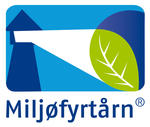Motivating active transport is a health and environmental policy priority, and plays an important role in achieving the necessary shift toward a sustainable transport system. Financial incentives are used widely to promote cycling, but there are very few studies documenting causal effects.
Using insights from behavioral economics paired up with new mobile technology, we test to what extent monetary incentives can motivate people to cycle through a Randomized Controlled Trial in the field. This experiment provides evidence of a causal relationship between the type of monetary incentive and the amount of cycling. In particular, we study the effect of a small, riskless flat rate for all, and of a lottery. Participants' mobility is monitored through a mobile app that registers travel behavior automatically. Results show that both a flat rate and lottery motivate people to cycle more. Compared to the control group without incentives linked to cycling, people who received an economic incentive based on how much they cycled, cycled 36% more and 18% more often. Additionally, we find interesting heterogeneous effects for subgroups such as women and people with low level of cycling experience. We do not find strong evidences that the induced extra cycling significantly substituted nor crowded out other modes.




